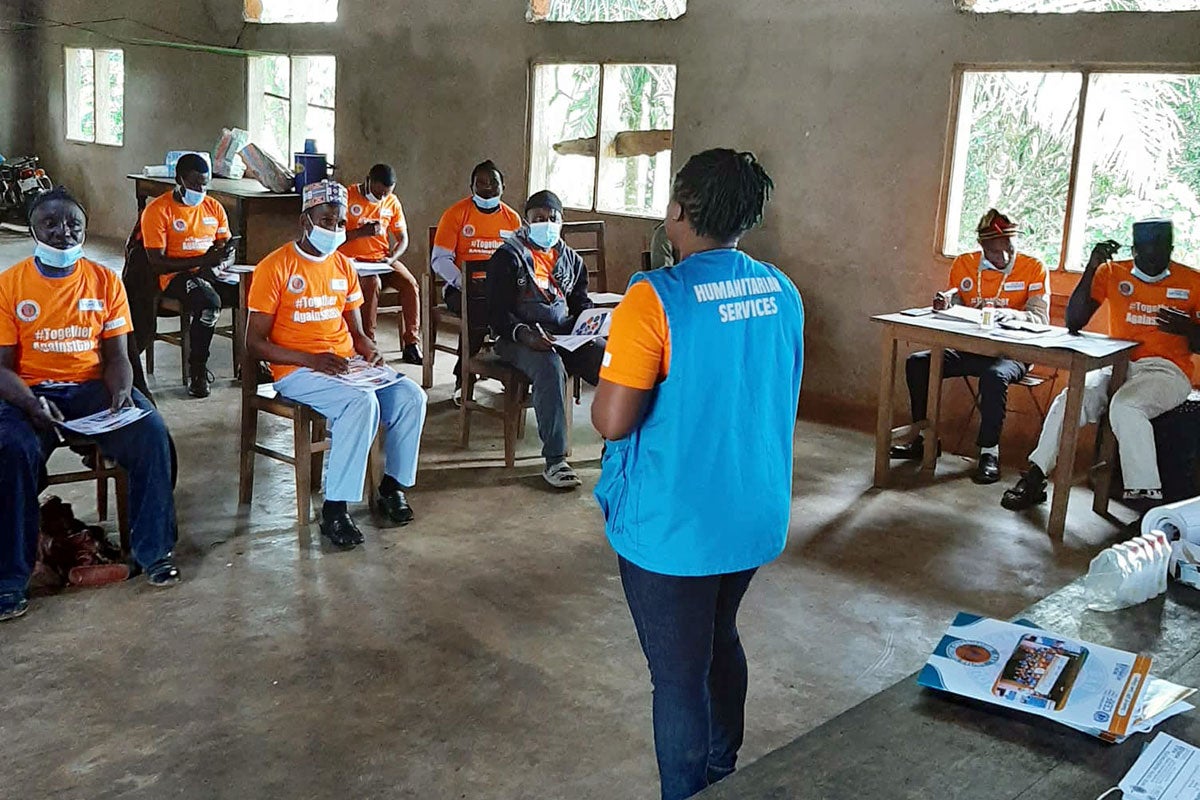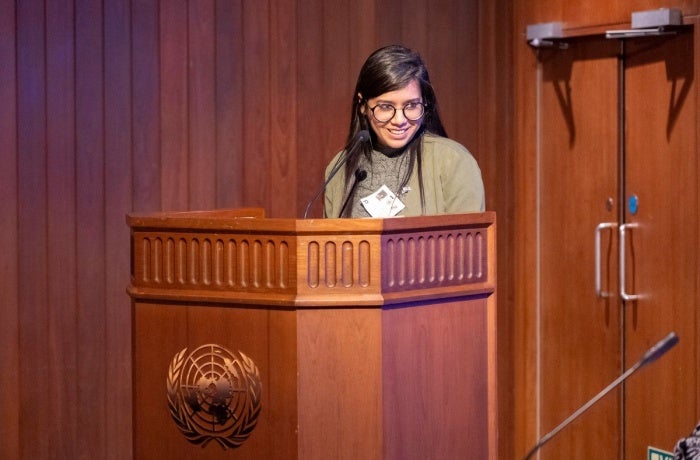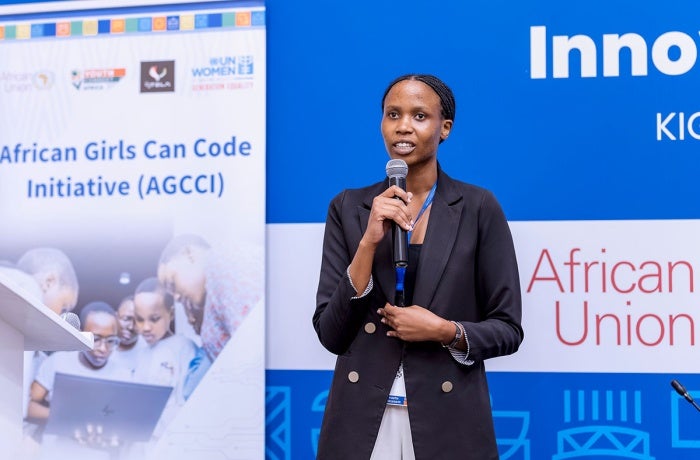Tackling discriminatory gender norms in Cameroon
Cameroon has been hit by repeated crises, including climate disasters, attacks on civilians by insurgent groups, and the economic impact of COVID-19 and rising inflation due to the war in Ukraine. In 2022, 3.9 million people required humanitarian assistance. Additionally, 979,000 people were in need of gender-based violence (GBV) services—94 per cent of whom were women and girls.
According to Loveline Musah, CEO of United Youths Organization (UYO), harmful social norms in Cameroon have “resulted in men asserting dominance over women. If a man violates a woman physically or sexually, it’s because communities believe that men are more powerful than women. And these beliefs perpetuate GBV.”

Melvin Songwe, UYO’s Chief of Administration, adds that women and girls are often afraid to report GBV for fear of retaliation by their husbands. “They are afraid of the unknown, of what will happen to them”, he said. “Additionally, they are afraid to speak with law enforcement agents for fear that there will be no sanction on the perpetrators who will in turn cause more violence on them. So, there is intense oppression in crisis-affected regions.”
UYO is one of the organizations in Africa that have partnered with UN Women to change attitudes toward GBV and discriminatory gender norms. The initiative in Cameroon is supported through a Central Emergency Relief Fund (CERF) global grant allocation on GBV prevention and response that has been implemented in six countries, including Cameroon.
Engaging men and boys can end GBV
Musah says that ending GBV starts with teaching men and boys about appropriate conflict resolution techniques, as well as positive masculinities.
Because many regions in crisis areas in Cameroon lack access to justice mechanisms or protection services due to protracted humanitarian crises, Songwe and Musah say that community support to end GBV is critical.
UYO has organized grassroots discussions, convening men, women, and religious and traditional rulers. “We did one training with 60 men, the majority of whom were ignorant about the issues of GBV,” said Songwe. “By the end of the session, 90 per cent of them were emotional about the fact that they had been causing harm to women and girls.”
Women leaders from the community have also joined the workshops to share their experiences with GBV and the emotional and physical toll it takes on women and girls. “The men pay high attention to what these women have to say”, said Songwe. “We take a deep look at the different forms of violence in their relationships.”
Songwe understands that, in a patriarchal society, it cannot be only women fighting for their rights. Men must be advocates and teach others to change the social norms driving gender inequalities in their communities.
“I take my responsibility as a HeForShe advocate seriously, which means I stand in solidarity with women to promote equal rights and empowerment. And I ask myself, as I move, what footprints am I leaving with the men around me? How can I make them understand what GBV is, what gender norms are, and how we can change them?”
In Cameroon, UN Women and partners, including UYO, reached 42,547 people, including men and boys, through sensitizations, workshops, dialogues, and other community engagements on GBV prevention, positive social norms, and gender equality. Furthermore, 20 community HeForShe groups of 599 men and boys were created and trained on positive masculinities, to advance the prevention of GBV.









